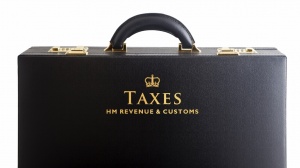While HMRC has managed to stabilize the overall levels of tax evasion, the rate has been increasing specifically among smaller enterprises.
UK Losing Billions Annually Due To Tax Evasion Among Small Businesses, Says NAO
While HMRC has managed to stabilize the overall levels of tax evasion, the rate has been increasing specifically among smaller enterprises.

The UK is reportedly losing billions of pounds annually due to tax evasion among small businesses, according to a new report by the National Audit Office (NAO).
The report highlights that small businesses, especially in the retail sector, are exploiting weaknesses in government systems to evade taxes, further widening the tax gap. While HMRC has managed to stabilize the overall levels of tax evasion, the rate has been increasing specifically among smaller enterprises.
One of the key issues identified in the report is HMRC's lack of a focused strategy to address tax evasion, with their efforts being directed towards maintaining overall non-compliance levels rather than explicitly targeting evasion in the retail sector.
The NAO report also flags electronic sales suppression (ESS) and phoenixism—where businesses intentionally go insolvent to avoid paying tax liabilities—as significant evasion methods that have not received sufficient attention from HMRC.
HMRC has had notable success in collecting VAT from online retail, particularly through new rules holding online marketplaces liable for VAT on sales by overseas retailers, adding an estimated £1.5 billion in revenue annually. However, gaps remain, particularly as some overseas companies falsely present themselves as UK-based to avoid VAT.
The report calls for HMRC to make better use of the powers it has acquired to tackle tax evasion and suggests tightening compliance controls to close these gaps, with the NAO suggesting that this could help raise significant additional revenue.
HMRC's response
HMRC has acknowledged the growing concerns over tax evasion among small businesses, particularly in sectors like retail. In response to these concerns, the tax authority has been ramping up efforts in several areas, although critics argue that more focused strategies are needed.
- Targeted Campaigns: HMRC has been running sector-specific campaigns, targeting high-risk areas such as takeaways and other retailers. These initiatives aim to close gaps in tax collection by identifying businesses that are more likely to evade taxes, although the NAO report suggests these efforts have not been comprehensive enough.
- Use of AI and Data Analytics: To improve its detection capabilities, HMRC has increasingly turned to technology, including artificial intelligence (AI) and machine learning, to spot patterns of evasion. This is particularly important for online retail, where new rules have made online marketplaces responsible for VAT on behalf of overseas sellers. While this approach has led to an increase in VAT collection, the NAO report highlights that significant loopholes remain, especially around companies falsely presenting themselves as UK-based.
- Powers and Legislation: HMRC has secured various powers to clamp down on evasion, but the NAO report criticizes it for not fully utilizing these. One of the major issues is phoenixism, where businesses dissolve to avoid paying taxes. Despite the fact that phoenixism accounted for a large portion of HMRC's tax debt losses, enforcement actions have been limited.
- Company Registration Reforms: The government introduced tighter rules at Companies House to reduce fraud, including requiring more thorough identity checks for directors. However, not all these measures will be in place until the necessary systems are developed, leaving ongoing risks in the meantime.
In summary, while HMRC has made some progress, the NAO report calls for a more strategic and systematic approach to fully address the issues of tax evasion, particularly in the retail sector. The report encourages HMRC to make better use of its powers and work across government agencies to clamp down on widespread evasion tactics.
Thanks for signing up to Minutehack alerts.
Brilliant editorials heading your way soon.
Okay, Thanks!


